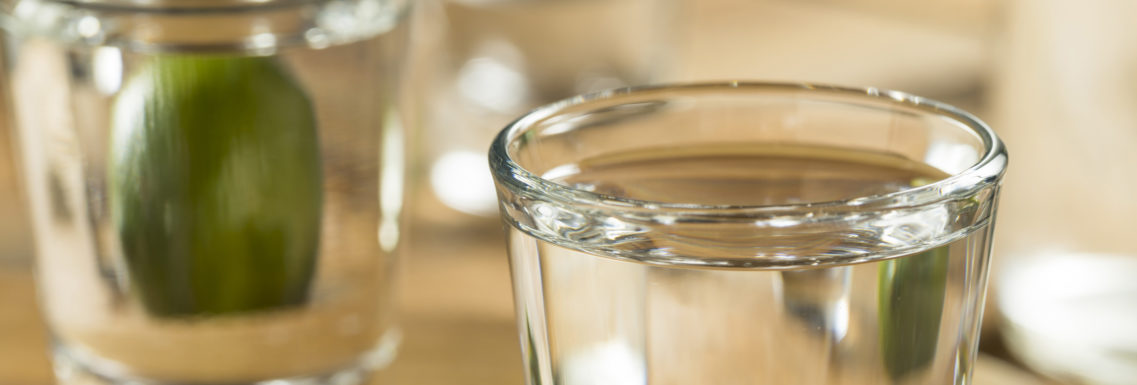Mezcal may be made from different varieties of agave. Agave Espadin is the most common and is widely cultivated, but other types of agave, including some varieties of wild agave, are used.
Mezcal must have at least 80% agave sugars, and it must be bottled in Mexico. Since 1994, the production of Mezcal is limited to the states of Oaxaca, Guerrero, Durango, San Luis Potosí, Zacatecas, Guanajuato, Tamaulipas, Michoacán and Puebla.
Production : The process for making Mezcal is artisanal. In the Mezcal process, only the heart “piñas” of the agave is used. The process is based on 4 steps:
- roasting to hydrolyze the inulin into fructose in an underground pit with charcoal from wood or hot stones as a heat source
- milling to extract sugars
- fermentation in wooden vats giving the Mezcal a smoky flavor
- distillation in pot stills, columns stills and sometimes in clay pots and reeds.
In fermentation, it is important to select yeast which is stress tolerant in respect of temperature, pH, sanitation, contamination by bacteria and ferments fructose as substrate.
Lallemand Distilling recommends to work with DistilaMax TQ due to its high stress tolerance and its capability to provide a complex ester and tropical aromatic profile.
DistilaMax LS which provides a complex and more flowery and ester profile.
If you want to get a different aromatic profile, you can use also DistilaMax SR providing a more neutral aromatic profile.
DistilaMax RM which can be a good alternative to get a complex aromatic profile only if the conditions of fermentation are tightly controlled.
In agave juice, more often there is a lack of key vitamins and minerals therefore we recommend to use a dedicated nutrition of the range DistilaVite in the rehydration and fermentation steps in order to get efficient kinetics of fermentation and the expected aromas.
Please, if you have any question, do not hesitate to contact our technical Team who will be happy to assist you .
-
DistilaMax®AG NEW
DistilaMax® AG was selected in Mexico on Agave tequilana (blue agave) juice using Tequila production conditions. DistilaMax AG has the ability to ferment fructose well and to work on a wide pH range. This results in good fermentation kinetics with […][ Read more ] -
DistilaMax® TQ
DistilaMax® TQ has been selected especially for its ability to ferment glucose and fructose in high-stress conditions. DistilaMax® TQ has the killer factor K2, enabling the yeast to outcompete wild yeast in the fermentation. DistilaMax® displays good temperature tolerance and […][ Read more ] -
DistilaMax® LS
DistilaMax® LS has a short lag phase and a fast fermentation rate in a wide pH range (3.25 – 5.3) DistilaMax® LS displays a good temperature tolerance (18°C – 32°C), it is this aspect that makes this strain a reference […][ Read more ] -
The Alcohol Textbook
The Ethanol Technology Institute, led by Scientific Director Dr Graeme Walker, publishes The Alcohol Textbook and conducts both The Alcohol School and Biofuels Academy. The 6th Edition of The Alcohol Textbook is now available. There is no better tool for […][ Read more ] -
DistilaVite®
During the process of alcoholic fermentation yeast, which is a complex living organism, is subject to various stressors: temperature, ethanol, pH, organic acids and others. In order to get a successful fermentation, yeast needs a balanced nutrient package which will maximize its potential […][ Read more ] -
DistilaVite® GN
Yeast is a complex living organism and as such needs a balanced nutrient package to deliver high yield and a consistent congener profile. Lallemand Biofuels & Distilled Spirits studied the needs of yeast to propose a specific blended complex yeast […][ Read more ]

